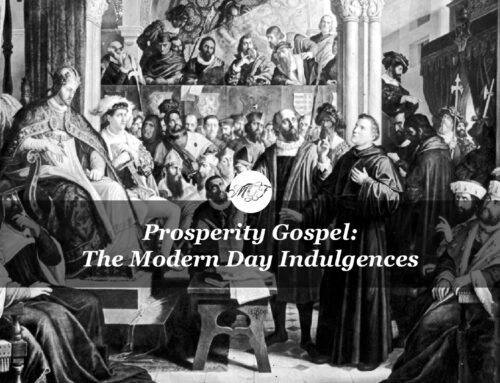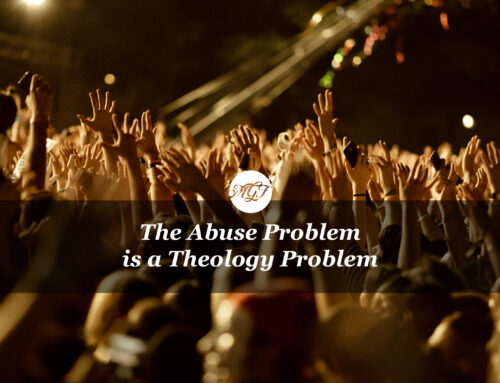In light of recent scandals unfolding at places like Daystar Television, and even in the spirit of asking ourselves the tough questions like whether a vocational pastor needs a leer jet, I’ve begun to ask a bigger question: what is a ministry? And more importantly: what is NOT a ministry?
I think we can all safely agree that a church, at its heart, is a ministry.
In the 1828 Webster’s Dictionary (the more accurate dictionary, let’s be honest), we find the proper definition of the word:
MIN’ISTRY, noun [Latin ministerium.] The office, duties or functions of a subordinate agent of any kind.
1. Agency; service; aid; interposition; instrumentality.
He directs the affairs of this world by the ordinary ministry of second causes.
2. Ecclesiastical function; agency or service of a minister of the gospel or clergyman in the modern church, or of priests, apostles and evangelists in the ancient. Acts 1:17. Romans 12:7. 2 Timothy 4:5. Numbers 4:12.
It sounds like Webster’s interpretation of the word is that a ministry is a service performed by a man of God. Obviously, ministry can also be used to describe the function of a government, but for the purposes of this conversation, we’re talking about the word in its religious context. So if a ministry is a service by a man of God, then it logically follows that a ministry is a function of faith and the outcome of a heart bent towards the Kingdom of God. In other words, ministry is a result, not a product or entity or person.
You might be asking yourself why this matters. I think often in the lexicon of the English language, we can take words and their meanings for granted. Then when we find ourselves in an argument online with a gaggle of keyboard theologians, the premise of the entire argument is overlooked and points are made that make no sense if everyone would stop to define what they’re even talking about.
Case in point: Daystar
For the past few weeks, the internet has been abuzz with arguments for and against the entity, slamming and defending the actions of the leadership over its existence. For context, Daystar is a television network based out of Dallas/Fort Worth. (I am a former employee.) They broadcast evangelists worldwide, sharing the Gospel of Jesus Christ with every country in the world. On its face, Daystar sounds like a ministry. In the eyes of Uncle Sam, Daystar is a church (Word of God Fellowship) doing business as a television network (Daystar). Therefore, Daystar gets all the tax-exempt, private financial benefits of being a church, all while making billions of dollars from their programmers (the evangelists who pay for airtime) and donors. On the outside looking in, it’s a brilliant business model that has become exceptionally lucrative.
But when questions begin to arise about who exactly paid for the $100,000 honeymoon of the owner, who purchased the owner’s Maserati, or why they need a company jet, all-of-a-sudden, Daystar has gone silent. It’s none of your business, apparently. Look somewhere else. They’re men and women of God who shouldn’t be questioned.
There was a time when I agreed with that way of thinking. Men of women of God are obviously influenced by God in a direct way, right? They would never do anything nefarious, much less selfish, right? If they have several mansions, lake houses, vacation homes, expensive cars, jets, trips, and designer clothing, it’s for a good reason, right? God would never lead them astray, after all.
The problem comes in when those pesky keyboard warriors start sniffing around, asking unwelcome questions. Then predictably we hear the tried-and-true retorts.
Stop dividing the church!
Judge not, lest ye be judged!
You’re just a jealous, bitter ex-employee!
The question becomes: is it dividing the Church to ask important questions? Is it divisive to muse whether or not a Maserati is absolutely necessary to ministry?
The Bigger Picture
Stepping back and looking at the big picture of what’s happened in the modern Church, I have begun to ask bigger questions, one of which has surfaced a lot lately. What exactly makes an organization a ministry? And what exactly qualifies it to be tax-exempt? I’m not talking about the law here. Even a brief dig into that topic will show that the laws in the United States regarding 501 (c) (3)s, particularly those qualified as churches, are vague and full of loopholes. But I’m not talking about what the government qualifies as a ministry.
I’m asking Christendom. I’m asking the Bible. I’m asking God.
Is it a ministry if I want to sell Christian t-shirts?
Does it perform functions of ministry? Sure. But is making something to gain a profit, even with religious themes, truly a ministry?
Is it a ministry if I record and sell Christian albums?
If I make money on my albums, should I get to call it a function of the Church? Should I be tax-exempt for that? (My LLC, Minor 5, Ltd., Co. is NOT a non-profit, in case you’re curious. Uncle Sam takes a rather large chunk of everything I do.)
Is it a ministry to have a Christian podcast? Television network? TV show?
If I make money on a podcast, should I be asking for donations to support it? Why isn’t it just a business that is Christian?
If I want to help couples with their marriages, do I need a 501 (c) (3)?
Do I need to take donations? Why? When did we collectively decide that doing something as a service to our fellow man should come with a financial payout?
I’m not saying I know the answers to these questions. I am saying we need to start asking them to begin with. As the Church, we should have a better answer for what qualifies as ministry. And the answer is not “because I do it for Jesus.” Why? Because as Christians, everything we do should be for Jesus. Profiting off of him, however, is not a part of that equation.
We can take this line of questioning further and ask if pastors should be paid. Worship leaders. Church secretaries.
Those are great questions I’ve been wrestling with myself. As an associate worship leader at my church, I am paid for that role. I will not and do not hide that. But I would be lying if I said I do not wrestle with that. Don’t get me wrong — pastors are humans and humans need to eat, have a place to live with electricity, water, etc. That takes money. I completely understand why vocational pastors are paid. We can have a separate conversation about how much is too much salary for a pastor, but a humble pastor serving his church in his hometown and living a humble, comfortable life is not what I’m talking about here.
And I can easily make the argument outlining the difference between the function a church pastor shepherding his flock and the product a TV preacher sells. Because I will die on this hill, but even if it’s a sermon you’re broadcasting on TV, if you make money on it, it’s a product you’re selling. I think we need to start having serious conversations about whether selling a sermon is a ministry. Or selling a t-shirt. Or an album. Or a book. Or a podcast. And don’t get me started on the churches that package and sell their sermon series, including the artwork, sermon notes, and pastoral outlines. My God, we’ve turned everything in the Church into a money maker.
It May Be Vague, But We All Know When the Line Has Been Crossed
The question I’m asking is: when a savvy businessman builds a business in the name of Jesus and that business becomes exceptionally successful (like Daystar), should it be called a ministry? Or should it be called a business that does ministry? And should that business that does ministry work be tax-exempt? And should that business be able to hide their expenses? If the end result of the ministry in question is profit, is it a ministry at all?
Backing up even father, I am not advocating for laws that define these things. Though I would not be opposed to some kind of threshold for determining whether a ministry qualifies for tax exemption anymore, perhaps there can be some kind of percentage ratio put in place. That’s for someone smarter than me.
What I’m asking is for the Church to stop living in the vague and get more intentional about drawing lines in the sand. We may not be able to clearly define every nuance of a ministry’s operation, but we can all agree that a pastor or ministry owner living in a 20,000-square-foot mansion, driving a Maserati, and flying in his personal jet has probably crossed a line where he is no longer in ministry. Just saying.
But that’s a hard conversation. It won’t be comfortable. It will require us to ask hard questions and then ask them again. It will require transparency. It will require humility. It will require true accountability (not a board of cronies, two of which are employees of the ministry, whose livelihoods depend on the success of that ministry *ahem*).
When are we going to grow up and start having those conversations?














